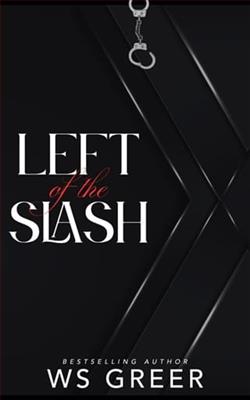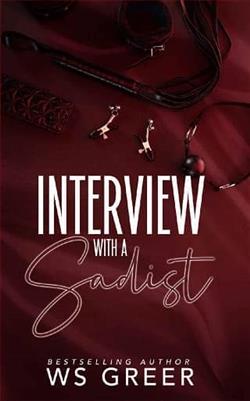Page 16 of Protected By the Grumpy Single Dad
“Out,” Sarah says, swatting me with a towel. “Clock. You go see your mom before you donate skin to the griddle.”
She’s right. I have somewhere to be. I give her a look of eternal gratitude (and mild terror at leaving her short-handed) and slip off my apron. The bell over the door jingles when I step into the afternoon. Sunshine hits my face; the breeze smells like dust and bakery sugar.
A cruiser rockets past at the far end of Main. My heart does a weird kick. I don’t catch the driver’s face, just the familiar white-and-blue blur and a flash of stubble in profile.
Was that Asher?
No. Not my business. Not my brain space. I get in my car and point myself toward Kinsley Home.
It always looks nicer than it smells—fresh paint, soft chairs, a mural with wildflowers—and still the lemon antiseptic crawls up your throat. The receptionist, Maria, smiles when she sees me.
“Hi, Jasmine.”
“Hey.” I sign the book. Under Patient:Annabel Wallace.It’s a name that used to be my world and, on days like today, might as well be a stranger’s.
“How’s she doing?” I ask reflexively.
Maria’s apology is practiced. “You’ll have to ask Dr. King.”
“Right.” I tuck the pen back into its chain and head down the hall. It’s muscle memory at this point—second door, then left, then the room that always has the TV a little too loud because someone’s hard of hearing and proud of it.
I mean to find Dr. King first. I don’t. I see her.
She’s in the robe I brought last time—blue with daisies—hands busy with something that looks like knitting. Her back is to me; shoulders narrow under the fabric in a way that hurts.
Please recognize me.
I move around her chair, slowly, like loud will scare the memory off.
“Hey, Mom.”
She looks up. Her eyes are the same color that they’ve always been, but the focus is wrong. It lands on me and slides off like rain off oiled paper.
“Do I know you?” she asks, polite as a stranger.
It still lands like a punch, even when you think you’re ready for it. I kneel and take her hands. They’re warm, familiar bones under papery skin.
“It’s me,” I say softly. “Jasmine. Your daughter.”
She studies my face. Something almost flickers and dies. “I don’t have children,” she says. “Jonas and I are still planning the wedding. Who are you?”
My father’s name drops like a stone in a still lake—ripples of a life I don’t have. I inhale lemon and loss and tell my eyes not to do the thing.
“Ms. Wallace?” Dr. King’s voice comes from the doorway. He’s as old as the building and twice as steady, stethoscope draped like a habit. He takes in the tableau in a glance, and his features soften. “Do you have a moment?”
I squeeze Mom’s fingers and stand. “I’ll be right back,” I lie, because the truth is I don’t know how to be here if she’s not here in the way that includes me.
We step into the hall, where the air is cooler and the clock ticks louder than seems decent.
“I’m sorry,” he says. “She’s had a difficult week. We’ve adjusted her meds a touch for sleep.”
“She didn’t know me.” I make my voice flat. If it’s flat, it won’t spill.
“Today,” he says gently. “It can be different tomorrow. Or not. Dementia is a thief who can’t keep a schedule.” He gestures toward the common room. “She’s been knitting again. That’s new this month. Motor memory waking something up.”
“What wakes people up?” The question is rawer than I plan.
“Sometimes: music from the right year, smells from the right kitchen, faces that anchored them.” He meets my eyes. “Sometimes: old friends. Familiar laughter, a story that loops enough times to catch.”















